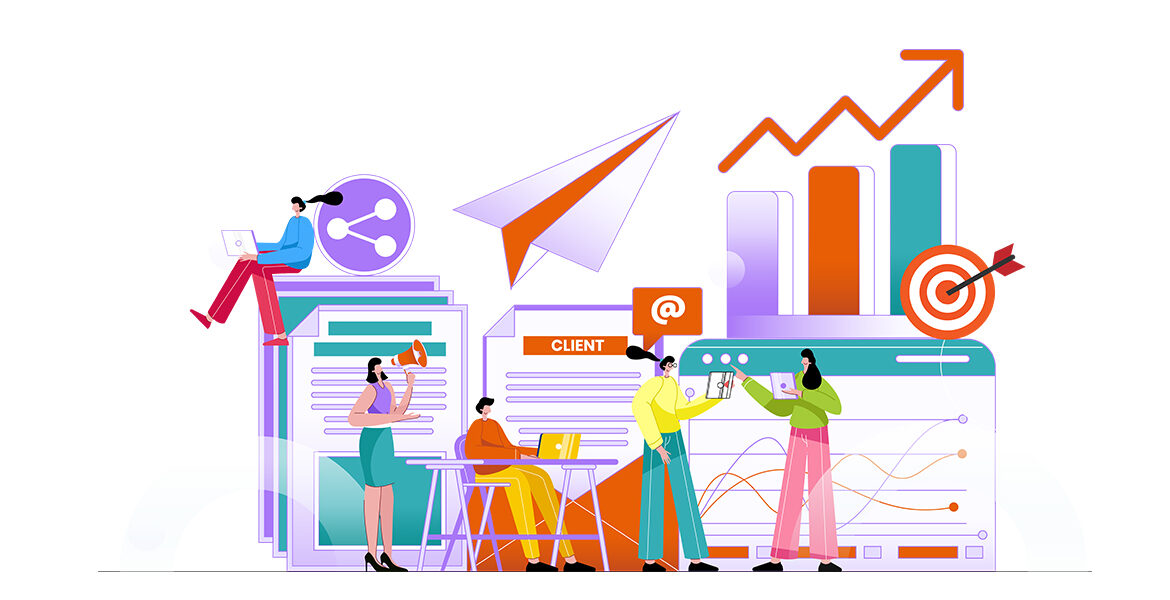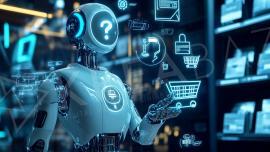Digital Advertising of the Future: AI Marketing
One thing many people agree on is that the digital advertising of the future will be AI marketing. AI-powered strategies, big data analytics and machine learning enable brands to reach brands with more effective efforts in a much more personalized way. Programmatic advertising and real-time bidding systems optimize ad placements, thus increasing the efficiency of campaigns. Image and voice recognition technologies improve content analysis and help brands quickly adapt to consumer trends. Chatbots and virtual assistants make customer service available 24/7, making the user experience more flexible and accessible. In the future, the further development of AI will bring hyper-personalized campaigns, predictive analytics and autonomous marketing systems to the forefront. This transformation will not only make advertising more efficient and measurable, but will also give brands a competitive advantage, allowing them to increase their scalability.
Contents;
Time and Resource Management with AI Marketing
There is no doubt that AI Marketing is and will continue to open a new era in time and resource management. Automation in digital marketing is a revolutionary development that enables businesses to optimize their time and resources. Automated advertising platforms optimize ads according to predetermined rules, reducing the need for human intervention. In areas such as email marketing, social media management and content distribution, automation tools improve the timing and targeting of campaigns and drive faster results. Customer journey mapping and lead scoring are automated, accelerating the sales cycle and enabling more strategic planning. Automation of data collection and analysis provides real-time insights to support rapid decision-making and give marketers more flexible management. These technologies provide marketers with greater flexibility and quicker turnarounds, making digital marketing more effective and efficient at every level, from small businesses to big brands.

How to Use Artificial Intelligence in Digital Advertising?
Artificial intelligence is a technology that enables machines to have human-like thinking, learning and decision-making abilities. So, how to use artificial intelligence in digital advertising? In digital advertising, AI helps to create more targeted and effective campaigns by making sense of user behavior through big data analysis. Machine learning algorithms optimize targeting strategies by predicting user behavior and increase the success of campaigns. Natural language processing automatically generates and tests ad copy so that the impact of content can be analyzed more accurately. Image recognition analyzes the content of images to determine appropriate ad placements, providing a more authentic experience for the user. In programmatic advertising, AI manages real-time bidding processes, optimizing spend and enabling brands to manage their advertising strategies more strategically. Personalization algorithms deliver tailored experiences for each user and strengthen customer loyalty to the brand. As a result, AI makes digital advertising more efficient, scalable and effective, helping brands increase customer loyalty and gain a competitive advantage.
Artificial Intelligence and Ad Budget Management
Managing an advertising budget in every business and job requires great attention and work. Today’s technology artificial intelligence is also taking a hand in this issue. Artificial intelligence and advertising budget management are intertwined in many companies today. Artificial intelligence is revolutionizing the management of advertising budgets. AI algorithms analyze past campaign data, market trends and consumer behavior to determine the most effective advertising channels and formats. Machine learning models predict the rate of return (ROI) on ad spend and allocate budgets for optimal performance. Dynamic pricing algorithms develop optimal bidding strategies for ad auctions and increase brand ROI. AI-powered tools monitor real-time performance data to continuously adjust budget allocation and reduce costs, enabling more strategic budget management. Predictive analytics enables proactive planning by anticipating future trends and helps brands quickly adapt to changing market conditions. By focusing on strategic decisions, marketers can use their budgets more efficiently, reduce costs and maximize ROI.
24/7 Customer Interaction with Chatbots
Chatbots stand out as an artificial intelligence application that completely transforms customer interaction in digital marketing. These systems provide 24/7 Customer Interaction with Chatbots . Currently , chatbots instantly detect and respond to user requests, while at the same time reducing costs and bringing efficiency to businesses. However, chatbots and AI-supported customer interaction tools transform the customer experience in digital marketing into an almost uninterrupted one. These technologies provide 24/7 service and prevent service disruption. They also increase customer satisfaction and reduce the operational costs of businesses. AI-powered chatbots can understand complex queries, provide appropriate answers and offer personalized recommendations thanks to natural language processing. Machine learning examines every data and every interaction. By learning from these reviews, it becomes smarter and makes the customer experience more effective. Sentiment analysis technology detects customer emotions and enables more empathetic responses, creating a stronger bond with the customer. These systems also collect customer data, providing valuable insights and helping to improve marketing strategies. As a result, AI-powered customer interaction increases customer loyalty and strengthens brand value by providing a personalized and efficient service.
Artificial Intelligence and Ad Performance
Artificial intelligence offers powerful tools to monitor and improve ad performance. AI evaluates the performance of ads more analytically with real-time data analysis and measures the success of campaigns by analyzing key metrics such as click-through and conversion rates. AI-powered optimization systems analyze user preferences based on historical performance data and continuously update campaign parameters accordingly. Real-time bidding strategies can direct budget to the most effective channels, ensuring that spend is allocated in a way that delivers optimal results. For example, A/B testing and multivariate testing can change ad copy, visuals or call phrases to reveal the most successful combination.
Furthermore, dynamic retargeting strategies increase conversion rates by delivering personalized ads based on previous interactions. AI also plays an important role in combating ad fraud, detecting fake clicks, bots and anomalous activity, ensuring that ad budget is spent on real users. The continuous improvement process enabled by ad optimization not only improves the performance of campaigns, but also drives brand success by enabling more efficient use of the marketing budget.
Artificial Intelligence, Ethics and Data Security
Artificial Intelligence, ethics and data security are still hotly debated topics. The increasing use of AI in digital advertising raises data security and ethical concerns. The collection of user data and its use for marketing purposes raises privacy concerns. AI’s ability to analyze large data sets brings potential risks such as unauthorized data collection. At this point, it is crucial for brands to manage their data collection processes transparently and comply with privacy laws. In this way, a more sustainable digital marketing strategy can be created while maintaining user trust.











































